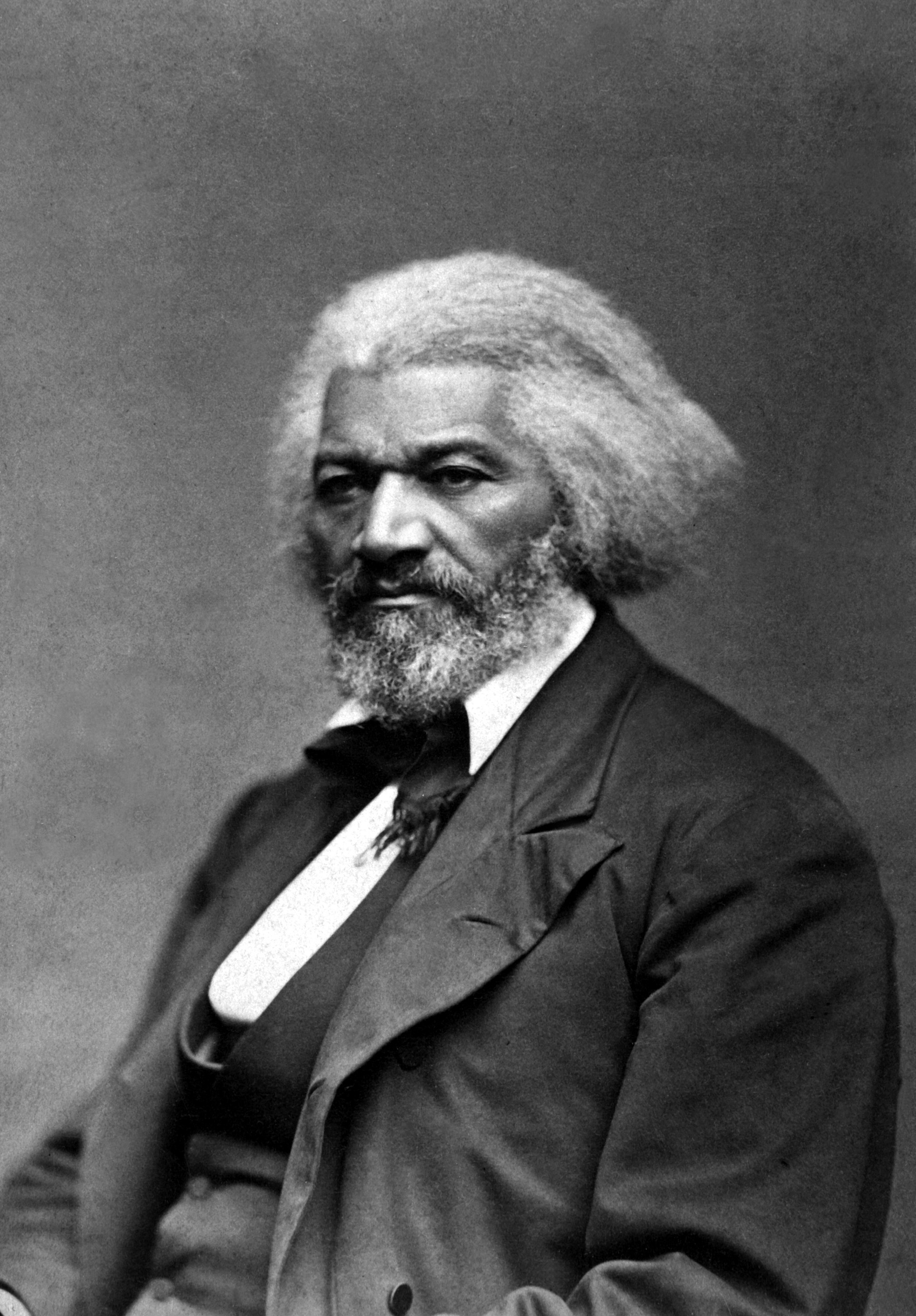„Границы возможностей тиранов определяются выносливостью тех, кого они угнетают.“
The limits of tyrants are prescribed by the endurance of those whom they oppress.
Фредерик Дуглас — американский писатель, просветитель, аболиционист, редактор и оратор. Один из известнейших борцов за права чернокожего населения Америки, руководитель негритянского освободительного движения.
Бежавший из рабства Дуглас стал лидером аболиционистского движения. Обладая выдающимися ораторскими способностями и умением излагать свои мысли письменно, Дуглас развернул обширную антирабовладельческую кампанию. Он стал живым ответом на аргументы рабовладельцев, утверждавших, что рабам не хватает интеллекта, чтобы стать независимыми американскими гражданами. Многие жители северных штатов США даже не могли поверить, что такой великий оратор, как Фредерик, был рабом.
Как писатель, Дуглас написал несколько мемуаров. В автобиографии «Повесть о жизни Фредерика Дугласа, американского раба» Дуглас красноречиво описал свои рабские будни. Книга стала бестселлером и влиятельным произведением в поддержку отмены рабства, впрочем, как и его другая писательская работа, «Мое рабство, моя свобода» . После Гражданской войны Дуглас оставался активным борцом против рабства и написал свою последнюю автобиографию, «Жизнь и эпоха Фредерика Дугласа». Он также поддерживал женское избирательное право.
Wikipedia

„Границы возможностей тиранов определяются выносливостью тех, кого они угнетают.“
The limits of tyrants are prescribed by the endurance of those whom they oppress.
„Жизнь нации в безопасности только тогда, когда эта нация честна, правдива и добродетельна.“
The life of the nation is secure only while the nation is honest, truthful, and virtuous.
I prefer to be true to myself, even at the hazard of incurring the ridicule of others, rather than to be false, and incur my own abhorrence.
I would unite with anybody to do right; and with nobody to do wrong.
Man's greatness consists in his ability to do and the proper application of his powers to things needed to be done.
No man can put a chain about the ankle of his fellow man without at last finding the other end fastened about his own neck.
“The Republican Party is the ship and all else is the sea around us.”
As quoted in Frederick Douglass American Hero http://books.google.com/books?id=9ykO8sKDE30C&pg=PA276&lpg=PA276&dq=%22I+know+the+man.+I+like+a+man+in+the+Presidential+chair%22&source=bl&ots=0JRNsxNa8j&sig=UJpkupLqhe7-DOrhKxCYSCo7EcY&hl=en&sa=X&ei=FA9lU5z5JsnQsQTM1YH4CA&ved=0CC0Q6AEwAQ#v=onepage&q=%22I%20know%20the%20man.%20I%20like%20a%20man%20in%20the%20Presidential%20chair%22&f=false (2008), by Connie A. Miller, Sr., p. 277
Вариант: For colored men the Republican party is the deck, all outside is the sea.
“Despite of it all, the Negro remains … cool, strong, imperturbable, and cheerful.”
Speech on the twenty-first anniversary of Emancipation in the District of Columbia, Washington, D.C. (April 1883).
1880s, Speech on the Anniversary of Emancipation (1883)
Speech http://teachingamericanhistory.org/library/document/the-nations-problem/
1860s, Our Composite Nationality (1869)
1870s, Oratory in Memory of Abraham Lincoln (1876)
They died for their country.
1870s, The Unknown Loyal Dead (1871)
1860s, Our Composite Nationality (1869)
Speech at the New England Woman Suffrage Association (May 24, 1886) Nicholas Buccola, edit., The Essential Douglass: Selected Writings & Speeches, Hackett Publishing Company, 2016, p. 307. Sometimes referred to as his “Who and What is Woman?” speech
1880s
1860s, The Constitution of the United States: Is It Pro-Slavery or Anti-Slavery? (1860)
"The Lesson of Emancipation to the New York Generation: An Address Delivered in Elmira, New York" (3 August 1880), as quoted in The Frederick Douglass Papers http://tfdf.org/blog/2012/05/15/why-i-am-a-republican-by-dr-james-taylor/, Volume 4, p. 581. Douglass is referring to Psalm 137:5-6.
1880s, The Lesson of Emancipation to the New York Generation (1880)
Inhumanity of Slavery. Extract from A Lecture on Slavery, at Rochester. December 8, 1850
1850s, My Bondage and My Freedom (1855)
1860s, Our Composite Nationality (1869)
1860s, Our Composite Nationality (1869)
Источник: 1840s, Narrative of the Life of Frederick Douglass, An American Slave (1845), Ch. 10
Appendix
1840s, Narrative of the Life of Frederick Douglass, An American Slave (1845)
Speech http://teachingamericanhistory.org/library/document/the-nations-problem/
1860s, Our Composite Nationality (1869)
Douglass Monthly https://web.archive.org/web/20160309192511/http://deadconfederates.com/tag/black-confederates/#_edn2 (March 1862), p. 623
1860s
1880s, Plea for Free Speech in Boston (1880)
1880s, The Future of the Colored Race (1886)
Источник: 1880s, Life and Times of Frederick Douglass (1881), pp. 110–111.
1870s, Oratory in Memory of Abraham Lincoln (1876)
Regarding John Brown, address at the 14th anniversary of Storer College http://www.wvculture.org/history/jbexhibit/bbspr05-0032.html (30 May 1881)
1880s, Address at the Anniversary of Storer College (1881)
Appendix
1840s, Narrative of the Life of Frederick Douglass, An American Slave (1845)
As quoted in Maurice S. Lee (2009), The Cambridge Companion to Frederick Douglass. Cambridge University Press, p. 50; Thomson, Conyers & Dawson (2009). The Frederick Douglass Encyclopedia. ABC-CLIO. p. 84